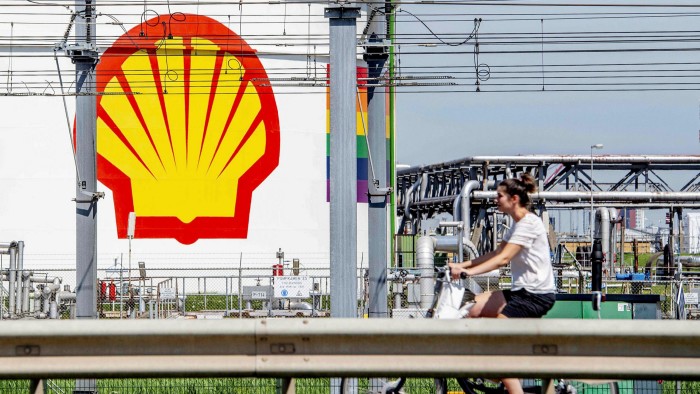The great dividend reset: is there a new normal for investors?

Roula Khalaf, Editor of the FT, selects her favourite stories in this weekly newsletter.
Fund manager Andrew Koch has worked in the investment industry for almost three decades, but this year ranks as the “most difficult” of his career.
First there was extreme market volatility, as well as adjusting to the challenges of working from home. Then the Legal and General Investment Management portfolio manager, who focuses on income-generating stocks, faced a fresh challenge: a dearth of dividends.
As the coronavirus pandemic swept around the world, companies from oil major Royal Dutch Shell to US bank Wells Fargo took a chainsaw to their shareholder payouts. In the UK alone, almost 450 public companies have cancelled, suspended or cut their dividends this year, according to GraniteShares, a provider of exchange traded funds. Companies in countries from France to Australia have also axed dividends.
Janus Henderson, the fund manager that monitors shareholder payouts, is forecasting a drop of about a fifth in underlying dividends paid globally in 2020, according to the next edition of its quarterly Dividend Index, to be published on Monday.
The question is whether these cuts mark a permanent shift in dividend payments globally, which hit a record high last year with businesses paying out $1.37tn.
“It has been a tremendously difficult time,” said Mr Koch. “There is definitely some kind of reset [of dividends happening]. Whether it is a big reset for years or a short-term blip for a couple of years we don’t know yet.”
Even before the pandemic, there were concerns that dividend payments at some companies and in some sectors were unsustainable. The fear was businesses were paying out hefty dividends to keep shareholders happy even as this strategy increasingly ate into cash buffers.
In some cases, payout ratios, a measure of dividends compared with total earnings, were well above 50 per cent, including at Shell, HSBC and BP.
Duncan Lamont, head of research and analytics at Schroders, the UK’s largest listed fund asset manager, said the pandemic prompted conversations about the need for companies to reset dividends to “something that is more sustainable in the long term”.
Despite a rally in stock prices in recent months, research from Mr Lamont looking at the S&P 500 constituents over a 149-year period suggests dividend payments might not recover as quickly. He found that when there was a bear market for dividends — classed as payout falls of at least 20 per cent — these have lasted almost five years on average, compared with 18 months in a total returns bear market.
“Stock prices anticipate future returns — they are looking at what will happen right now and also in the future. But dividends can only [usually] be paid out of income that has been earned,” he said. “Dividends cannot pick up until the bottom line improves.”
He points out that dividend futures, which are used to bet on future payments, are also anticipating that shareholder payouts will take years to return to pre-Covid-19 levels.
“This all suggests equity investors will have to brace themselves for lower dividends for years,” he added.
Stephen Message, a UK equity income fund manager at LGIM, said that even when companies resumed paying dividends, it was likely to be at a lower level than before the crisis, potentially for several years.
Others, however, are more optimistic.
Thomas Schuessler, co-head of equities at DWS, believes the bulk of dividend cuts are over. He argues that dividends will recover in line with earnings, “with some lag”.
Ben Lofthouse, head of global equity income at Janus Henderson, said: “It is going to be painful for people this year, but it is not indicative of a complete change.”
He added that early on in the pandemic, there was an “immense amount of commentary about it not being politically acceptable to pay a dividend”, with companies in countries such as France and the UK bowing to political and societal pressure by suspending payouts.
But such actions have not been seen across the entire world, he said. In North America, for example, many businesses ditched share buyback programmes but retained dividend payouts.
Richard Saldanha, a fund manager at Aviva Investors, said he was “still seeing plenty of dividend opportunities, whether in the US or in some emerging markets”.
He cites tech stocks as potential good dividend payers of the future, such as SAP in Europe. “A lot of [tech] companies are looking at paying dividends or growing their dividend over time.”
There are also signs of companies restarting their dividends, with UK groups including housebuilder Persimmon and insurer DirectLine announcing plans to do this.
Still, Mr Saldanha said he did not know if the end to the wave of dividend cuts this year was in sight. “It depends on how the recovery plays out,” he said.
Even with a swift recovery, Mr Saldanha argues dividends will continue to be under the spotlight because of growing political and societal pressure on businesses. “Companies are going to have to think a lot more about how they allocate capital,” he said.
One thing many investors agree on, however, is that some companies will probably never return to the same level of payouts as they offered before they crisis.
Valentijn van Nieuwenhuijzen, chief investment officer at NN Investment Partners, the Dutch asset manager, said this could be the case at some energy or finance businesses, where there are growing questions around their profitability.
In a world where interest rates have hit rock bottom, even investors who believe dividend payouts could take years to recover argue income stocks remain vital.
“The overall reset [to dividends seen this year] is quite dramatic in the short-medium term, but over the longer term, I expect dividends to remain critical to the investment proposition,” Mr van Nieuwenhuijzen said.
Mr Koch, too, still has faith in shareholder payouts. “Dividends will continue to be important.”
Comments